Vitamin B12
Vitamin B12, also known as cobalamin, is a water-soluble vitamin that is essential for various bodily functions, including the production of red blood cells, DNA synthesis, and proper nerve function. It is one of the eight B vitamins and is crucial for maintaining a healthy nervous system and forming red blood cells.
Sources of Vitamin B12
- Animal products such as meat, fish, poultry, eggs, and dairy products
- Fortified foods such as breakfast cereals, plant-based milk alternatives, and nutritional yeast
- Vitamin B12 supplements
Functions of Vitamin B12
- Red blood cell formation: Vitamin B12 is necessary for the synthesis of hemoglobin, the protein in red blood cells that carries oxygen throughout the body.
- Neurological function: It helps maintain the health of nerve cells and supports the production of myelin, a fatty substance that insulates and protects nerve fibers.
- DNA synthesis: Vitamin B12 is involved in the synthesis of DNA, which is essential for cell division and growth.
Deficiency and Health Implications
A deficiency in vitamin B12 can lead to a condition known as megaloblastic anemia, which is characterized by the production of abnormally large red blood cells that cannot function properly. Symptoms of B12 deficiency may include fatigue, weakness, constipation, loss of appetite, weight loss, and neurological changes such as numbness and tingling in the hands and feet.
Study Guide for Vitamin B12
- What are the main food sources of vitamin B12?
- What are the functions of vitamin B12 in the body?
- What health implications are associated with vitamin B12 deficiency?
- How can individuals ensure an adequate intake of vitamin B12 in their diet?
- Explain the role of vitamin B12 in red blood cell formation and neurological function.
◂Science Worksheets and Study Guides Third Grade. How do plants grow?
Study Guide How do plants grow?
How do plants grow?  Activity Lesson
Activity Lesson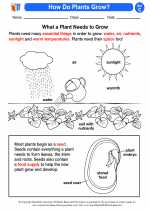 How Do Plants Grow?
How Do Plants Grow?  Worksheet/Answer key
Worksheet/Answer key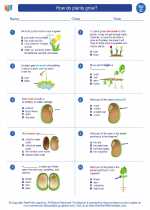 How do plants grow?
How do plants grow?  Worksheet/Answer key
Worksheet/Answer key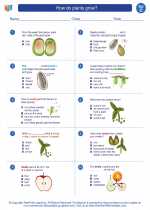 How do plants grow?
How do plants grow?  Worksheet/Answer key
Worksheet/Answer key How do plants grow?
How do plants grow?  Worksheet/Answer key
Worksheet/Answer key How do plants grow?
How do plants grow?  Vocabulary/Answer key
Vocabulary/Answer key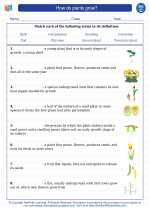 How do plants grow?
How do plants grow?  Vocabulary/Answer key
Vocabulary/Answer key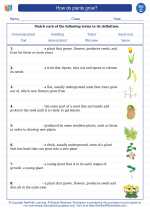 How do plants grow?
How do plants grow? 

 Activity Lesson
Activity Lesson
 Worksheet/Answer key
Worksheet/Answer key
 Worksheet/Answer key
Worksheet/Answer key
 Worksheet/Answer key
Worksheet/Answer key
 Worksheet/Answer key
Worksheet/Answer key
 Vocabulary/Answer key
Vocabulary/Answer key
 Vocabulary/Answer key
Vocabulary/Answer key

The resources above cover the following skills:
LIFE SCIENCE (NGSS)
From Molecules to Organisms: Structures and Processes
Students who demonstrate understanding can:
Develop models to describe that organisms have unique and diverse life cycles but all have in common birth, growth, reproduction, and death.